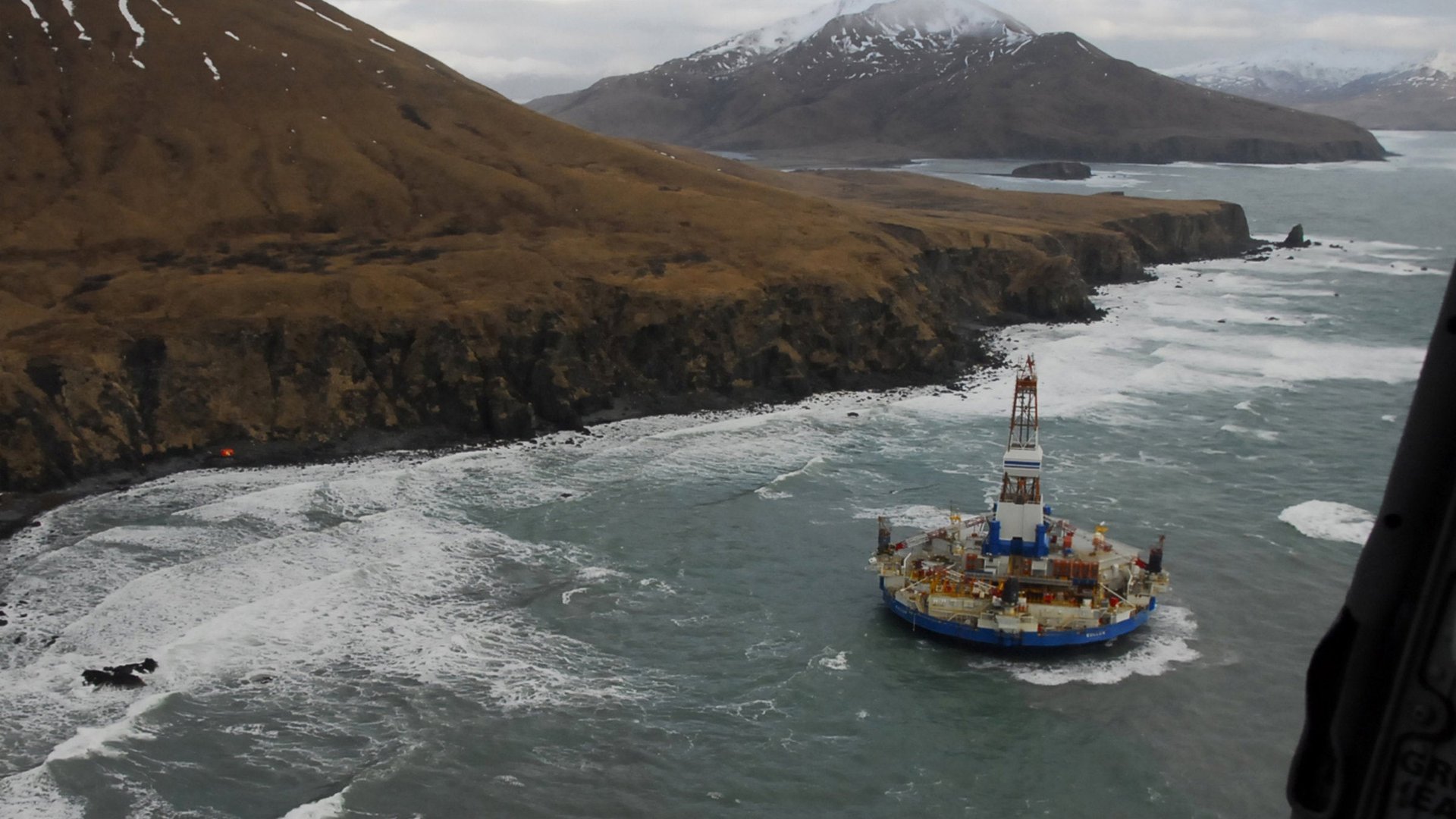Shell’s delay in the Arctic exposes a conflicted industry
Shell’s decision to wait out the year before resuming drilling for oil in Alaska’s Arctic waters reflects a conflicted industry. Tantalized by the grandest hydrocarbon bonanza anywhere on the planet, oil majors have snapped up exploration and drilling opportunities in the US, Greenland and Russia. Yet they are moving gingerly, mindful of risks of a scale that, in the case of a catastrophic accident, could destroy a company while damaging the pristine Arctic.


Shell’s decision to wait out the year before resuming drilling for oil in Alaska’s Arctic waters reflects a conflicted industry. Tantalized by the grandest hydrocarbon bonanza anywhere on the planet, oil majors have snapped up exploration and drilling opportunities in the US, Greenland and Russia. Yet they are moving gingerly, mindful of risks of a scale that, in the case of a catastrophic accident, could destroy a company while damaging the pristine Arctic.
Shell announced Feb. 27 that it would conduct no oil drilling in the Chukchi Sea this year after a series of setbacks. In October, a fire broke out aboard a drilling rig called the Discoverer. On Dec. 31, its other drilling rig, called the Kulluk, ran aground. While the Kulluk was being rescued, its towing vessel, the Aiviq, developed an engine failure.
The announcement confirmed a general understanding that a lack of spare rigs on the market prevented the company from being able to resume drilling this year. On Feb. 26, the Kulluk finally began the slow, four- or five-week journey from Alaska to an as-yet undesignated repair facility in Asia.
The Arctic’s appeal is consensus estimates that some 22% of the world’s remaining oil and gas lies within the Arctic Circle.
Industry analysts whom I contacted said that it is not clear when Shell’s work will resume. In addition to regulatory pushback from Washington, the company itself could decide to wait for the development of more advanced and robust drilling, anti-spill, cleanup and rescue equipment. In oil, one year’s delay has a way of drifting into two, then three and four.
Generally speaking, the industry has put up a solid wall of hale confidence in its ability to safely drill in the Arctic. ConocoPhillips said Feb. 27 that it will proceed with drilling in the Chukchi next year. And Norway boosted its estimate of undiscovered offshore Arctic oil and gas to 18.7 billion barrels–2.5 billion barrels, or 15%, higher than the previous number. The country, which has opened no new acreage to drilling since 1994, plans to decide whether to allow drilling in the southeastern Barents Sea by the summer.
But the wall of confidence was breached in September, when France’s Total said companies should drill only for natural gas (paywall) in the Arctic, and not for oil. Total CEO Christophe de Margerie said any oil spill would “do much damage” to his own company’s reputation, while gas leaks are more easily contained.